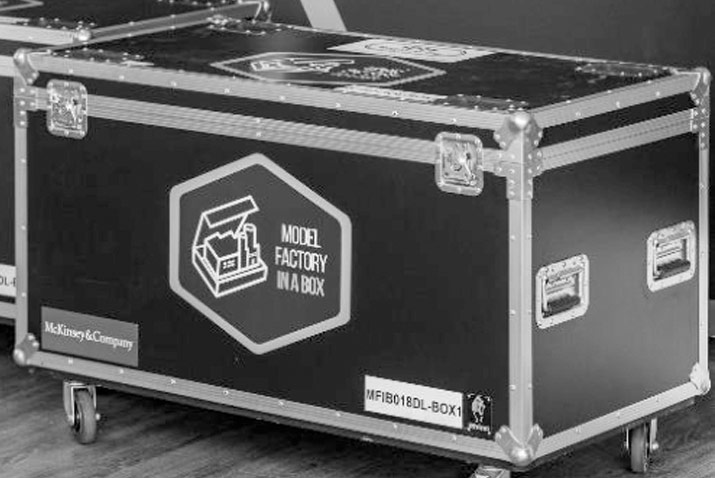

Displaying lateral and pragmatic applications of modular construction methodologies, a “kit-of-parts” solutions to build vaccine production centres is being considered that can be shipped anywhere in the world.
According to big pharma heavyweight, GSK’s former vice president of capital strategy John Dyson, who is now a professor of human enterprise at the University of Birmingham – has thrown his support behind Bryden Wood’s (an international company of technologists, designers, architects, engineers and analysts) “factory in a box” solution to create a series of “clean room” facilities to be used for vaccine production.
The Bryden Wood solution would allow Covid-19 vaccines to be produced across the UK, removing the logistical challenges of importing the vaccines from other countries.
As has been widely publicised, the UK is expecting vaccine supplies to drop during April partly due to the logistics of importing them from factories in India and the European Union.
The “factory in a box” solution centres around the principle of rapid, modular construction delivered through composite design for manufacture and assembly (DfMA) components.
The solution allows for mass customisation while “providing standard materials and infrastructure that provides familiar and best practice operation and maintenance”.
Essentially, colour-coded components are prefabricated off-site, loaded into a shipping container, and then shipped to the destination jobsite anywhere in the world.
Once on site, only simple tools and relatively simple construction methods are needed to assemble the factory.
A corresponding building information modelling model (BIM) is also produced for the construction team to follow.
The concept was first conceived by Bryden Wood five years ago in response to a call for ideas competition from GSK to accelerate construction within the pharmaceutical sector.
In total, Dyson – who spent 23 years at GSK – estimates that it would take six to nine months to set up “factory in a box”-style clean rooms; meaning the UK could have its own vaccination production line in place for the winter booster jabs.
“When you think about traditional vaccine manufacturing plants, the main problem is the size of the buildings that they are in; huge monolithic type buildings,” Dyson said. “Because of the size it can take 18 months to two years to set them up.”
“However, we believe that using the factory in a box, you can be up and running in six to nine months. What’s more you can build them pretty much anywhere.”
He added: “The hard part is not the construction, or even getting the equipment in place. The hard part is ensuring that there are enough qualified people to work in these places if and when they are built.
“If you look at the Nightingale Hospitals for example, it was a great effort to convert all those spaces into hospitals, but in the end there wasn’t the staff to run them.
“So if we are going to look at setting up vaccine production sites in the UK we have to look at how they will operate as well.”
Dyson added that areas with a strong manufacturing and science presence, such as Oxford and Cambridge, would be obvious places to locate the first factory in a box clean rooms.
He added that conversations about the proposals have been taking place with the government.
The factory in a box idea won plaudits in the Construction Leadership Council’s 2016 review of the industry titled Modernise or Die.
Carried out by Cast Consultancy chief executive Mark Farmer, the report concluded that greater uptake of modular construction – like Bryden’s Wood proposal – was needed to ensure profitability in the construction sector.
The review concludes: “The current pace and nature of technological change and innovation in wider society is such that unless the industry embraces this trend at scale, it will miss the greatest single opportunity to improve productivity and offset workforce shrinkage
“Failing to embrace change will also further marginalise the industry by reducing its attractiveness to a new generation of workers who will have grown up in a digital world.”
See: www.brydenwood.co.uk
Click Here to return to the home page for more articles.